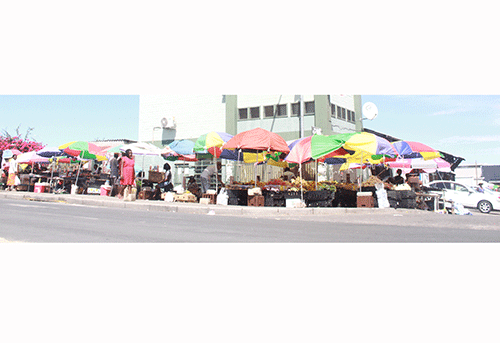As with any political election, bread-and-butter issues inevitably come to the fore, and unavoidably have a huge impact on the outcome.
The same bodes for this year’s Presidential and National Assembly elections when Namibians’ disdain for the current socio-economic environment could ultimately be a significant contributing factor.
This year’s elections are expected to be heated, separating pretenders from genuine contenders, as politicians would normally say.
But in an election year, the business community has specific interests, and is aiming for future goals while addressing operational concerns.
Some of the aspects regarding elections and their impact on businesses and corporates include policies and frameworks, procurement and local government procedures.
Speaking to New Era, independent economic researcher Josef Sheehama said any business is killed by too much red tape and unfavourable trade policies.
“Businesses want a tranquil atmosphere, high retaining investment and reasonable corporate tax rates. Therefore, local content development is expected to become even more crucial for all industry stakeholders as the necessity of localising value chains in Namibia grows. To create a conducive environment for business, a legal framework and strong institutions should be provided,” he stated.
He said the business community is eagerly awaiting local content guidance related to green hydrogen, as well as oil and gas.
Local content can be defined as the active participation of the Namibian workforce and entrepreneurs in the upstream oil and gas sector through training, employment and local procurement of goods and services.
This, Sheehama said, is the primary factor to ensure the business community remains content, and runs smoothly and profitably.
He noted the business communities are frustrated by policies due to ineffective service delivery.
They expect the incoming president to ensure the business properties and investments are protected, and that their voices regarding effective governance and trade policies are heard by the incoming administrators.
“If Namibia is to unlock and unleash vast economic potential, and truly achieve the goal of the industrial revolution, there is a need to substantially improve the business environment, and make it more friendly and conducive in terms of ease and cost of doing business.
“Therefore, rethinking, redefining and reforming development policy implies confronting these realities. This effort must be closely tied to policy goals, but also regulatory frameworks,” added the economist.
Meanwhile, some businesses have been calling for an update on the implementation of the National Equitable Economic Empowerment Framework (NEEEF) and the Investment Promotion Bill. The gist of the NEEEF transformation policy is to serve as a corrective measure of the indisputable socio-economic inequality produced by past discriminatory laws and practices.
More aptly, it is to amend great income disparities that have existed in Namibia pre-independence.
Moreover, representatives of the Namibia Local Business Association (Naloba) have called for foreign investors and businesses to focus on vast opportunities not engaged in by local businesses.
This, they said, calls for fair competition and job-creation, particularly for local graduates.
In addition, businessman Leake Hangala said any new administration should focus on economic growth, inequality and poverty.
“We should now come up with cleaner policies in regard to emerging sectors to ensure that Namibians, from individuals to the business community, benefit from our own resources,” he said.
He also highlighted government should work on an effective procurement system in the country.
This, is to ensure efficiency, and combat corruption in the public procurement process.
Hangala further took issue with the limping domestic construction sector.
He said government should see how to revive this ailing sector, specifically because it can absorb many unemployed Namibians, and can be a catalyst for other sectors.
Memories
Also weighing in, economist and founder of High Economic Intelligence (HEI) Salomo Hei during a budget presentation, went down memory lane to signal events that were decisive or stood out in early election-year budgets.
The 1999 national budget was categorised by slashing corporate taxes from 40% to 35%.
This was seen as a move to attract foreign direct investment by opening the Namibian economy that was approaching a decade into democracy.
Five years later, the talk of the town was an increase in pension fund contributions, the completion of the new State House, which boosted the construction industry and created much-needed jobs, as well as a special disease programme.
Fast forward to 2009, when there were tax cuts for the ‘poor’ on items such as milk and sugar, tax exemptions for war veterans, and the first bailout for the now-defunct Air Namibia.
The 2014 election budget followed massive spending on the Targeted Intervention Programme for Employment and Economic Growth (TIPEEG) and the mass housing programme, as well as another Air Namibia bailout.
“TIPEEG had a problem with execution, but planning was okay,” Hei commended.



